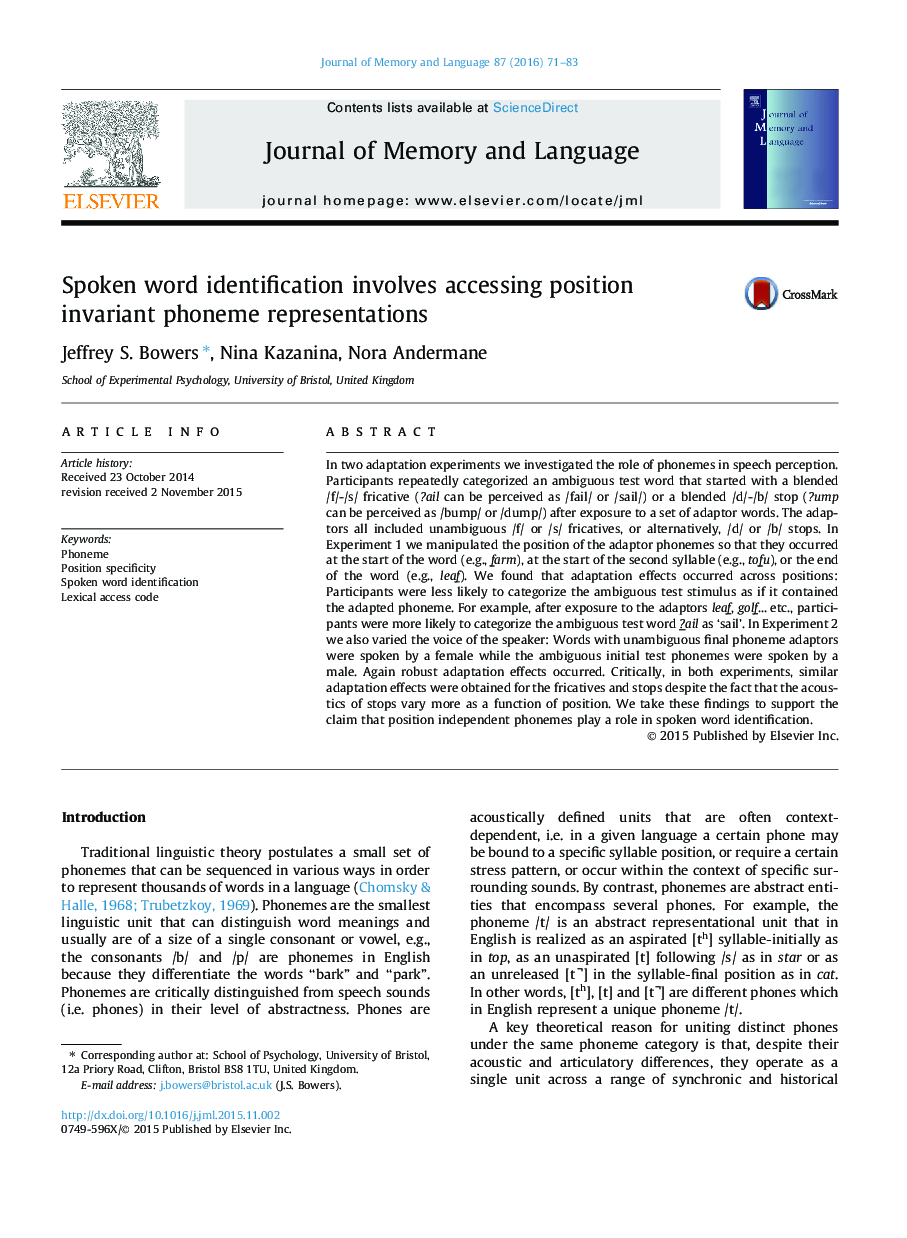| Article ID | Journal | Published Year | Pages | File Type |
|---|---|---|---|---|
| 7296975 | Journal of Memory and Language | 2016 | 13 Pages |
Abstract
In two adaptation experiments we investigated the role of phonemes in speech perception. Participants repeatedly categorized an ambiguous test word that started with a blended /f/-/s/ fricative (?ail can be perceived as /fail/ or /sail/) or a blended /d/-/b/ stop (?ump can be perceived as /bump/ or /dump/) after exposure to a set of adaptor words. The adaptors all included unambiguous /f/ or /s/ fricatives, or alternatively, /d/ or /b/ stops. In Experiment 1 we manipulated the position of the adaptor phonemes so that they occurred at the start of the word (e.g., farm), at the start of the second syllable (e.g., tofu), or the end of the word (e.g., leaf). We found that adaptation effects occurred across positions: Participants were less likely to categorize the ambiguous test stimulus as if it contained the adapted phoneme. For example, after exposure to the adaptors leaf, golf... etc., participants were more likely to categorize the ambiguous test word ?ail as 'sail'. In Experiment 2 we also varied the voice of the speaker: Words with unambiguous final phoneme adaptors were spoken by a female while the ambiguous initial test phonemes were spoken by a male. Again robust adaptation effects occurred. Critically, in both experiments, similar adaptation effects were obtained for the fricatives and stops despite the fact that the acoustics of stops vary more as a function of position. We take these findings to support the claim that position independent phonemes play a role in spoken word identification.
Keywords
Related Topics
Life Sciences
Neuroscience
Cognitive Neuroscience
Authors
Jeffrey S. Bowers, Nina Kazanina, Nora Andermane,
